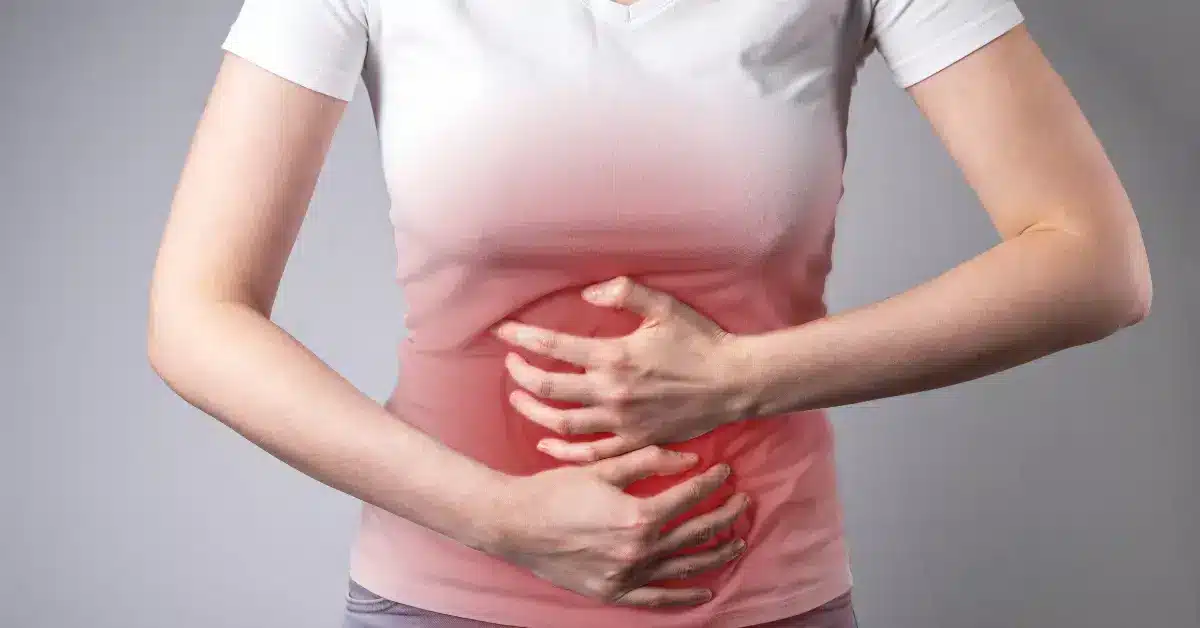Behind the Bathroom Door: What to Know About PMS Diarrhea
If you have noticed that your Diarrhea usually coincides with your menstrual period, it is not just a coincidence. It is because of Premenstrual Syndrome.
The Premenstrual phase, formally known as the Luteal phase, brings several symptoms. Diarrhea is among one of them.
It is the most common gastrointestinal symptom during Premenstrual Syndrome.
If you are in your reproductive years, you may face this symptom before and during your menstrual period.
Diarrhea can sometimes be severe and immensely hinder your daily life activities.
But some tips and tricks may help reduce your PMS symptom of diarrhea.
This article will discuss PMS diarrhea in detail and some important ways to treat it.
What is PMS diarrhea

Diarrhea, in general, is defined as when you have loose or watery bowel movements (stools).
It is among many gastrointestinal issues you may face during your menstrual period, like abdominal pain.
A study was conducted in which 19% of healthy women with Premenstrual Syndrome reported diarrhea as a symptom.
In most cases, diarrhea goes away some days after your menses start. But sometimes, it may get severe and lead to other chronic issues.
You may notice the following symptoms when your PMS diarrhea is getting severe:
- Dehydration
- Severe pain in your abdomen or rectum
- A fever of 102 degrees or higher
- Stools containing blood or pus
- Stools that are black and tarry
How PMS causes diarrhea
The exact cause of PMS diarrhea is yet to be discovered. But currently, it is related to menstrual cramps.
Menstrual cramps occur because of Prostaglandins. They are the chemicals that make the muscles of your uterus tighten and relax, causing cramps.
In the gut, this hormone-like chemical can cause the following effects, which may lead to diarrhea in PMS:
- Smooth muscle contractions
- Reduced absorption of electrolytes
- Induced secretion of electrolytes
How long will diarrhea in periods last
Most symptoms of PMS start in the late Luteal phase and last through the early Follicular phase of the menstrual cycle.
This means that you may notice the onset of diarrhea just before the beginning of your menstrual period or during it.
Diarrhea, like other PMS symptoms, may typically last for nine days. It includes five days before the beginning of menstruation and four days after the start of bleeding.
But, this period is not the same for every woman. Some may have diarrhea only after the start of the menstrual bleeding.
A study was conducted on 156 women, among which 24% reported premenstrual diarrhea while 28% reported diarrhea during the menstrual period.
Risk factors
Certain factors may increase the risk of diarrhea during periods. Some of them are:
- Dietary factors: Some foods may make PMS-related diarrhea worse. For instance, dairy products, fried, spicy foods, etc.
- Gastrointestinal problems: Some women may already have digestive difficulties, such as Irritable Bowel Syndrome (IBS). It may worsen during PMS, causing diarrhea.
- Stress: Stress can impact the digestive system and alter bowel movements. In the days preceding your period, you may be more susceptible to developing PMS diarrhea if stressed.
Treatment options

There are several easy remedies available for treating diarrhea. It includes:
- Drink plenty of water: As diarrhea makes you lose excess fluids, the best way is to fulfill the loss.
- Eat certain food: Eat high-potassium foods, such as bananas, potatoes without the skin, fruit juices, etc.
- Foods to be avoided: Fried or greasy foods should not be included in your diet if you have diarrhea.
- Liquids to be avoided: Caffeine, alcohol, and carbonated drinks can aggravate diarrhea; itâs better to prevent it.
- Medications: Loperamide is a medication that is generally prescribed to treat diarrhea. You may be advised to take this medication for PMS diarrhea.
- Less stress: As mentioned, stress can trigger diarrhea. So you should try calming activities like meditation.
Takeaway
Premenstrual Syndrome (PMS) is a collection of symptoms you may face in your menstruating years.
PMS also includes common gastrointestinal symptoms, including diarrhea.
PMS-induced diarrhea can occur before or during your menstrual period. due to Prostaglandins.
The hormone-like chemical can cause smooth muscle contractions that may result in diarrhea.
Certain risk factors, like stress, existing gastrointestinal problems, etc., may increase the risk of diarrhea in PMS.
You can prevent and treat PMS diarrhea in many ways, like drinking plenty of water, eating high-potassium food, avoiding caffeine, etc.
Frequently Asked Questions
Why do I get diarrhea during PMS?
The exact reason for diarrhea during PMS is unknown. But it is related to menstrual cramps that are caused by Prostaglandins. These hormone-like chemicals cause contractions that may lead to diarrhea in Premenstrual Syndrome.
What type of food can you eat during PMS to reduce diarrhea?
PMS diarrhea can be reduced or controlled by eating foods high in pectin. You may have applesauce, bananas, and yogurt. Remember to break your meal into smaller portions rather than having one heavy meal.
Does PMS affect bowel movements?
Yes. Your bowel movements can be affected during Premenstrual Syndrome (PMS). The changes in bowel movement due to PMS can be constipation, diarrhea, or more frequent bowel movements. The effects may go away in some days after the start of menstrual bleeding.
Is constipation or diarrhea one of the symptoms of PMS?
Yes. Constipation and diarrhea can both be symptoms of Premenstrual Syndrome. Women usually tend to suffer from constipation before the start of menstrual period. Whereas diarrhea is generally reported during PMS and at the beginning of the period.
WowRx uses only high-quality sources while writing our articles. Please read our content information policy to know more about how we keep our content reliable and trustworthy.






